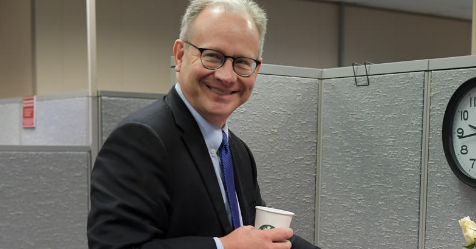In a memo to Nashville’s Traffic and Parking Commission, Mayor David Briley gives the details of his plan to turn over management of Nashville’s parking spaces to a private company, increase fines by 227%, extend enforcement times to 10 p.m., to include Sundays, increase meter rates, and eliminate free parking for clean energy vehicles. The move would also result in nearly a dozen Metro employees being reassigned. Metro would also be penalized for using its own spaces if it needed to take more than 150 spots out of service for construction or special events, such as the NFL Draft.
In addition to everything above, the Mayor’s proposal also outlines how the private company would take over the administration and issuance of valet parking permits, loading zone permits for the city, and all residential street parking permits. This would place a private company in charge of everything parking related in the entire city of Nashville – for a 30-year contract term.

The Mayor says the company should make an upfront payment to the city (e.g. $30 million), as well as replace the city’s current net revenue of $1.5 million per year. The chosen company would manage the spaces, issued the tickets, collect the fines, and even issue permits for businesses and companies as related to valet parking, loading zones, and street parking permits in residential areas.
The Mayor has asked the Traffic and Parking Commission to endorse the plan to the Metro Council. While his plan only proposes a $0.25 increase to the rate for parking meters, the plan says “$11 fines are not sufficient to encourage compliance with Metro’s parking policies”, and proposes increasing the fines to $25. The plan would also eliminate all ‘green’ free parking permits for Clean Technology vehicles, stating they could cost the city up to $100 million over the term of an agreement if allowed to park for free.

Five employees in the Public Works department, and a substantial amount in the Circuit Court Clerk’s office would have to be reassigned to other duties with the proposed plan. The Mayor says no layoffs are anticipated within the departments.
As a part of the plan, the city would find space to add an additional 500 outsourced parking spots per year for at least 4 years, resulting in a doubling of the current 2,000 spaces. These are expected to be in The Gulch, West End, SoBro, and the CBD. Metro would also be penalized if they took more than 150 meters out of service at any one time for special events, or functions.

This plan is currently in front of the Traffic and Parking Commission, and will soon be presented to the Metro Council. You may contact the Metro Council here: CouncilMembers@nashville.gov
Here’s the full text of the memo, sent from Mayor Briley to the Traffic and Parking Commission at their most recent meeting (PDF version):
Leading cities modernize and actively manage their on-street parking as a key component of urban planning and curb space management. Our on-street parking operation in Nashville, by contrast, is missing many of the customer service features found in modern parking operations, requires multiple handoffs among Metro offices and staff to administer (including manual processing of tickets), and lacks real-time reporting and data analytics required to effectively manage “smart” cities today.
Nashville’s challenges related to curb space management have been detailed in several reports over the years, such as the Downtown Multimodal Mobility Study (2014), the Urban Land Institute of Nashville’s Gear Up 2020 (2016), and Metro’s Connected Nashville smart-city plan (2018). After more than a year of studying our current system, analyzing best practices in other markets, and discussions with stakeholders, Metro issued a request for quotations (RFQ) in September to explore whether partnering with a third-party would allow Metro to implement state-of-the-art technology that could substantially improve the parking experience and modernize Metro’s approach to curb management. Five of the leading parking management teams in the country responded to the RFQ, offering subject matter expertise in operations, finance, safety, infrastructure, technology, and analytics. The proposals made it clear that a public-private partnership could result in significant benefits to Metro, including:
- Access to leading-edge technology tools that make it faster and easier to pay for parking,
including the ability to pay using credit cards or pay-by-phone apps; - Increased parking space turnover and availability to improve customer access for retailers,
restaurants, and other types of local businesses; - Access to wayfinding technology to identify available spaces and thus reduce cruising for
parking, which can be a significant driver of traffic congestion and diminished air quality; - Improved operation and enforcement of rush-hour restrictions, residential permit parking,
and no-parking times for street sweeping and related activities; - Availability of robust data analytics to inform curb management decisions; and
- Ability to extend meter times via a secure smart phone app to avoid ticketing.
Metro is still in the solicitation process, but anticipates having an agreement that will be ready for the approval of the Commission at a future meeting. However, it is already clear that several policy changes warrant your consideration:
Enforcement Times
Enforcement hours should be extended from the current 8 a.m.-6 p.m. to 8 a.m.-10 p.m. Enforcement hours in high-demand zones in Memphis and Knoxville go to 10 p.m. In markets such as Austin and Minneapolis, enforcement hours in some areas go to 12 a.m.; in Denver they extend to 2 a.m. Terminating enforcement at 6 p.m. significantly limits the supply of available spaces during peak demand periods in markets with thriving nighttime business districts.
Meter times should also be enforced on Sundays. Historically, most businesses were not open on Sundays. Business-district hours in many cities have dramatically expanded, especially in places with vibrant nightlife. Cities such as Minneapolis, Portland, and Denver have adopted Sunday hours for meters because it assists in parking turnover and benefits retailers and their visitors.
Rates
Meter rates in Nashville are currently $2.00 per hour in the Central Business District (CBD) and $1.50 outside the CBD. Nashville’s rates are roughly comparable to other cities in Tennessee but underpriced compared to some other markets, such as Minneapolis and New Orleans, where rates are $3.00 per hour in high-demand zones. Other cities, such as Baltimore and Seattle, have adopted “dynamic” pricing, where rates can go as high as $5.00 per hour to manage availability during peak periods in high-demand areas. As part of this modernization effort in Nashville, we are proposing a modest $0.25 increase to go into effect one year after implementation of the new parking system, with periodic adjustments tied to inflation (i.e. CPI) thereafter.
Fines
Parking fines in Nashville are $11 for an expired meter and $16 for staying over the maximum time limit. We must avoid punitive fines — and make it easier for people to avoid fines through improved technology such as pay-by-phone apps — but $11 is not sufficient to encourage compliance with Metro’s parking policies. We propose increasing the fines to $25, on par with Denver, and still considerably lower than cities such as Atlanta ($35) and Minneapolis ($45).
Free Parking for Clean Technology Vehicles
Metro currently offers free metered parking for clean technology vehicles and vehicle owners who purchase carbon offsets. Today, these programs represent a small portion of total demand for onstreet parking — only 142 “green” permits for free parking were issued in 2018 — but independent analysts have predicted that electric vehicles could make up as much as 65% of light duty vehicle sales by 2050. Over time, if a meaningful number of those vehicle owners participated in Metro’s free parking program, the financial impact to Metro could exceed $100 million over the term of an agreement, based on Metro’s analysis of the responses to the RFQ. That is a significant amount of money that Metro could use to achieve sustainability goals through other methods with potentially greater positive impacts on the environment. Therefore, we propose phasing out the green permit program and, instead, finding other ways to achieve the goals of the existing policy.
Changing this policy requires an amendment to Metro Code by Council ordinance, but it is being referred to the Commission for a recommendation to Council beforehand.
In addition to the policy changes above, Metro Code will need to be amended to allow for certain provisions of a successfully negotiated agreement with a vendor.
Outsourcing
As part of the proposed agreement, we intend that the vendor will take over administrative duties related to ticketing and collection (Metro Police will always retain enforcement authority). This transfer of responsibility to the vendor will impact the duties of at least five employees in Public Works and several employees in the Circuit Court Clerk’s Office. The Circuit Court Clerk and the Director of Public Works have both indicated that all affected employees can be reassigned to related duties; therefore, implementation of this parking modernization effort will result in no anticipated layoffs of Metro employees.
Expansion
Metro’s current on-street parking inventory consists of approximately 2,000 spaces located in four Metro Council Districts: 19 (66% of meters), 21 (19%), 18 (13%), and 17 (2%). Based on Metro’s analysis and input from vendors during the procurement process, we believe the current system could be expanded by as many as 2,000 metered spaces, primarily in The Gulch, West End, SoBro, and the CBD. Assuming an agreement is successfully negotiated, we propose adding up to 500 metered spaces per year for four years, resulting in a total of approximately 4,000 spaces. Specific locations for new spaces would come before the Commission for approval after completing an engineering analysis and getting input from residents and businesses in the impacted areas. A future system of 4,000 metered spaces in Nashville would be larger than Austin’s system today (3,000) but smaller than New Orleans (4,500), Denver (6,200), and Minneapolis (8,000).
Meter Removal
Metro frequently needs to take meters temporarily out of service for special events, traffic control, parklets, and other purposes. As part of the proposed agreement with the vendor, Metro will be able to take up to 150 meters temporarily out of service with no financial penalty. Multimodal Projects
Several bikeways are programmed as near-term projects in the current meter footprint, including on 3rd Avenue, Commerce Street, and Union Street/Woodland. In addition, WeGo Public Transit is planning to improve passenger boarding at several bus stops along West End Avenue. The proposed agreement will accommodate these uses and not disrupt any of these programmed projects.
Valet Parking and Loading Zone Permits
We intend for the vendor to take over the administration of valet parking and loading zone permits under the proposed agreement, subject to oversight and approval by the Commission. Current permits will stay in effect until they expire. Upon implementation of the new parking system, the Commission will have access to much better data to inform future policy decisions on permitting.
Residential Permit Parking
We also intend for the vendor to take over the administration of a modernized and improved residential permit parking system, subject to oversight and approval by the Commission. Current permits will stay in effect until the new system is fully implemented.
Finally, as part of any agreement, it is in Metro’s and the community’s interest to ensure that we maintain flexibility for future needs, such as transit, bike and pedestrian improvements, pick-up and drop-off locations for ride sharing or scooters (subject to the limits of state law), and other applications that future technology may make possible. Curb management is a rapidly evolving space, and it will become an increasingly important function of urban planning, mobility, and city management. Engaging with a third party that can bring deep subject matter expertise, global knowledge, and leading-edge technology solutions under this proposed agreement is a critical step in Nashville becoming a smart city prepared for the future.




